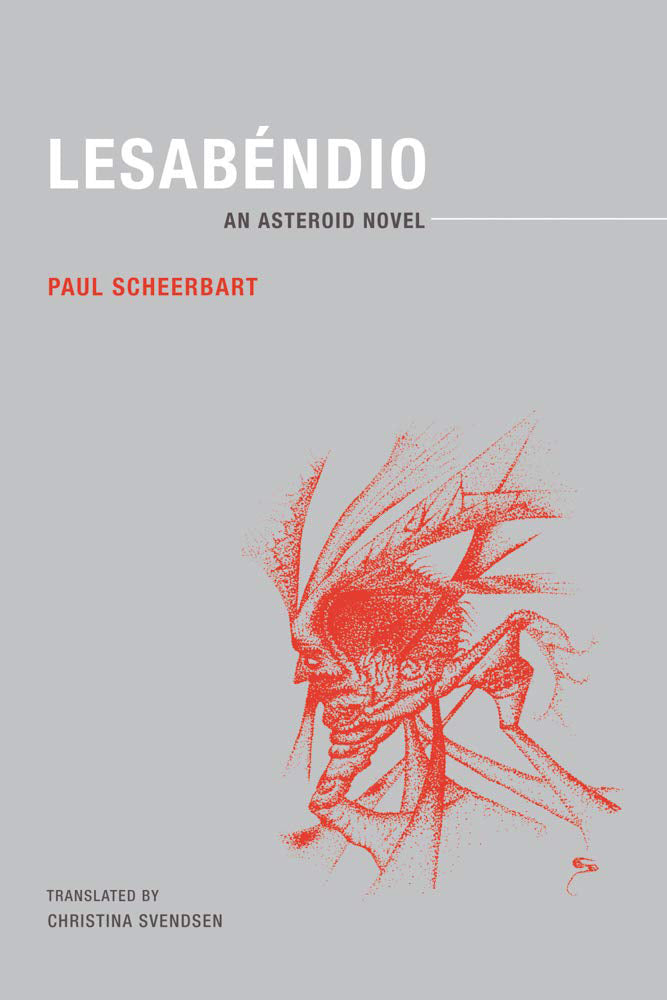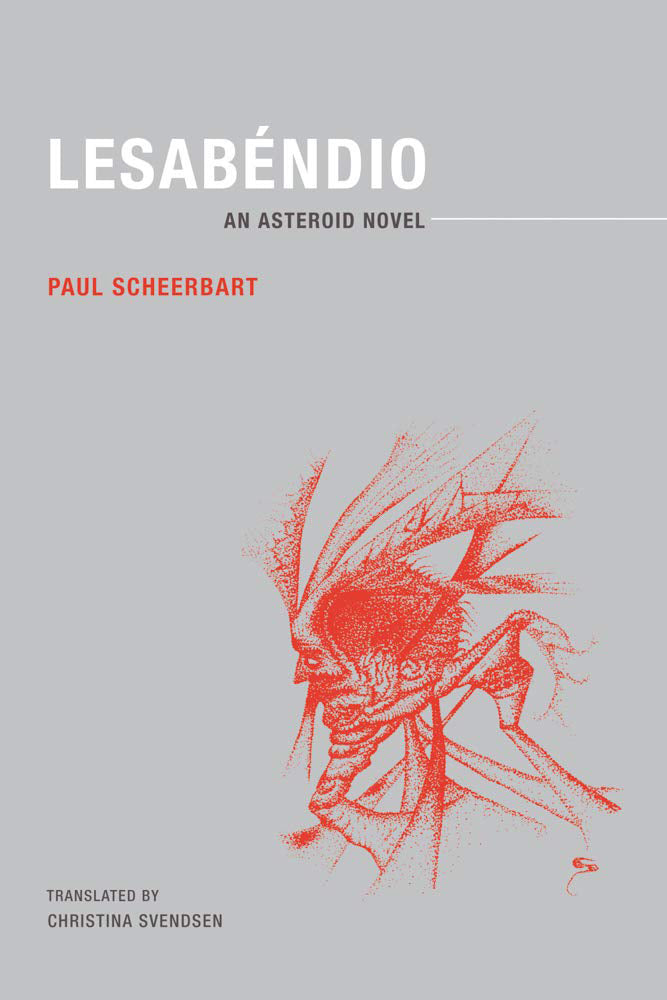Lesabéndio: An Asteroid Novel
Lesabéndio: An Asteroid Novel
Paul Scheerbart
Couldn't load pickup availability
Illustrations by Alfred Kubin / Translated, with an introduction, by Christina Svendsen / November 2012 / 6 x 9, 280 pp / 978-0-9841155-9-4
“The serene and gentle amazement with which the author tells of the strange natural laws of other worlds, the great cosmic works undertaken there, and the naively noble conversations of their inhabitants makes him one of those humorists who, like Lichtenberg or Jean Paul, seem never to forget that the earth is a heavenly body.”—Walter Benjamin
First published in German in 1913 and widely considered to be Paul Scheerbart's masterpiece, Lesabéndio is an intergalactic utopian novel that describes life on the planetoid Pallas, where rubbery suction-footed life forms with telescopic eyes smoke bubble-weed in mushroom meadows under violet skies and green stars. Amid the conveyor-belt highways and lighthouses weaving together the mountains and valleys, a visionary named Lesabéndio hatches a plan to build a 44-mile-high tower and employ architecture to connect the two halves of their double star. A cosmic ecological fable, Scheerbart’s novel was admired by such architects as Bruno Taut and Walter Gropius, and such thinkers as Walter Benjamin and Gershom Scholem (whose wedding present to Benjamin was a copy of Lesabéndio). Benjamin had intended to devote the concluding section of his lost manuscript The True Politician to a discussion of the positive political possibilities embedded in Scheerbart’s “Asteroid Novel.” As translator Christina Svendsen writes in her introduction, “Lesabéndio helps us imagine an ecological politics more daring than the conservative politics of preservation, even as it reminds us that we are part of a larger galactic set of interrelationships.”
Paul Scheerbart (1863–1915) was a novelist, playwright, poet, newspaper critic, draftsman, visionary, proponent of glass architecture, and would-be inventor of perpetual motion. A member of avant-garde art and architectural circles, his ideas were crucial for participants in the Glass Chain movement, a group that included major architects such as Walter Gropius, Bruno Taut, and Hans Scharoun. Scheerbart opposed the naturalism of his day with fantastical fables and interplanetary satires that were to influence Expressionist authors and the German Dada movement, and which helped found German science fiction. After suffering a nervous breakdown over the mounting carnage of World War I, Scheerbart starved to death in what was rumored to have been a protest against the war.
Press
“Following his death, Scheerbart remains almost wholly forgotten in both the German and English-language world, despite the fact that his eccentric fables had massive repercussions not only in the writings of Benjamin but also the theories of Bruno Taut, Walter Gropius and Peter Sloterdijk, all of whom helped shape 20th century perspectives of the inextricable relations between technology and environment. As an artifact of this interdiscipline, Lesabéndio is an essential text and Scheerbart is a prophet in need of disinterment.”
—Erik Morse, Los Angeles Review of Books
“Svendsen's translation does this novel justice. Mostly, though, the luxurious flights of fancy are what captivate readers in this thought-provoking, gently satirical tale of life on the asteroid Pallas, starring a visionary (Lesabéndio) whose technological and spiritual ambitions set in motion momentous changes for his fellow Pallasians.”
—Michael Kasper, Choice
“Many of Scheerbart’s ideas were spun out in drinking sessions with his friends in Berlin beer-halls, where he had acquired quite a reputation as a drunken raconteur. The novel retains this sense of giddy, spontaneous imagineering. […] a fine-press edition, adroitly rendered into English by Christina Svendsen (who also provides an informative introduction).”
—Andrew Joron, Hyperallergic
“Scheerbart’s odd humor, with its ability to estrange so much of our usual experience, makes the novel Lesabéndio both a challenge and delight to read, wrecking havoc as it does with assumptions about fiction and expectations about physical reality.”
—John F. Barber, Leonardo
“Christina Svendsen deserves our thanks for her able translation of an undeservedly overlooked classic of … well, what shall we call it? Sf or just imaginative literature? Early twentieth-century German literature? And Wakefield Press deserves our gratitude (and patronage) for producing this attractive book with its bonus of illustrations. So buy two: one for yourself, one for some other impoverished fan of sf or student of German avant-garde literature. Or two for yourself: one for your library, and one so you can cut out and frame some of those Kubin drawings.”
—William B. Fischer, Science Fiction Studies
“For admirers of the work of Walter Benjamin, a translation of Paul Scheerbart’s Lesabéndio: An Asteroid Novel is a major event.”
—Todd Cronan, Radical Philosophy
“Christina Svendsen has caught the spirit of Scheerbart’s frangible undertaking”
—Alexander Gelley, MLN
“For those pondering a professional future beyond their humanities educations, Scheerbart weighs the importance of technical discovery, aesthetic progress, and collaboration between artists and scientists. Bonus: Lesabéndio is one of the most original alien characters out there.”
—Katherine Brooks, Huffington Post, “30 Books You Need to Read Before You Turn 30”
“Due both to this satirical bite and Scheerbart’s masterful and enchanting execution, Lesabéndio covertly but incontrovertibly influenced twentieth and twenty-first century literary, artistic, and critical theories of humanity, industrialism, and aesthetics.”
—DH Varma, Make Literary Magazine


